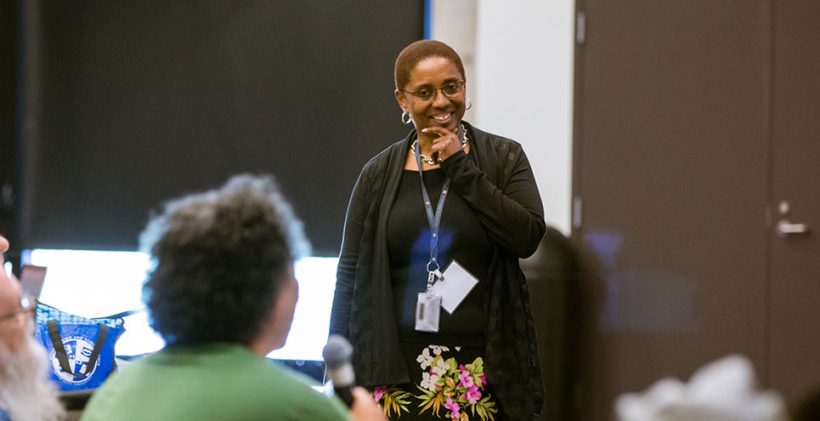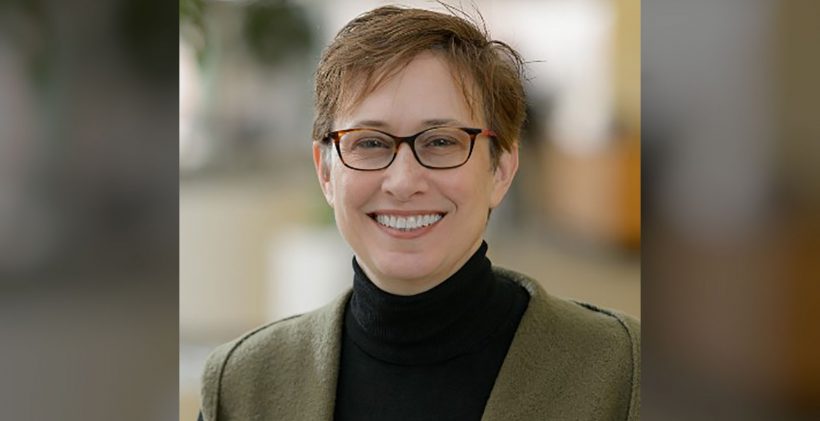I Am HPC
Valerie Taylor, a Distinguished Fellow and director of Argonne’s MCS Division, will be moderator of the SC23 opening plenary “I Am HPC: Impact and Future Directions.”


Argonne researchers are part of two teams that are finalists for this prestigious award. A team from Argonne, Oak Ridge National Laboratory, Penn State University, and the University of Illinois at Urbana-Champaign is a Gordon Bell Prize finalist for “Exascale Multiphysics Nuclear Reactor Simulations for Advanced Designs,” the first simulation of a fully coupled, fully

Argonne’s Lois Curfman McInnes will give an invited presentation on “Broadening Participation in HPC: Together We Can Change the World.” She will discuss how achievements in HPC drive advances in science and technology and how collaborative efforts, including those within ECP, are vital for creating a diverse and inclusive HPC workforce that can tackle big

Murali Emani of the Argonne Leadership Computing Facility (ALCF) will join colleagues to lead the fourth annual workshop on the use of AI/ML in scientific applications. Computer scientists and domain scientists from government, academia and industry will share advances, introduce new scientific application problems, and stimulate tools and infrastructures.

The inaugural meeting of the PVC Users Group will be held at SC23. Those working with or interested in the Intel Data Center GPU Max Series (aka Ponte Vecchio – PVC) will gather to share experiences with PVC and plans for deployment. Organized by the Intel Extreme Performance Users Group (IXPUG), the meeting will have

Now in its fifth year, the Extreme-Scale Experiment-in-the-Loop Computing (XLOOP) workshop focuses on the intersection of HPC and large-scale experimental science. Chaired by Argonne’s Justin Wozniak and Nicholas Schwarz, the XLOOP workshop will feature papers and presentations detailing how advances in computing, including new AI data transfer methods, are helping to accelerate discoveries by integrating

Argonne’s David Martin will co-host a panel discussion with industry representatives on how the Exascale Computing Project and the move to exascale computing is impacting industry’s current and planned use of high performance computing in saving energy, boosting competitiveness, and building global technology leadership.
Argonne’s research in quantum information science—from theory and algorithms to simulations and modeling of quantum systems—will be featured when Yuri Alexeev co-chairs the Fourth International Workshop on Quantum Computing Software. He will also present a paper with Ruslan Shaydulin and others on “fast simulation of high-depth QAOA circuits” and join William Berquist and others in a
Argonne researchers will present several sessions at this workshop chaired by the ALCF’s Scott Parker. Esteban Rangel, Adrian Pope, and Nicholas Frontiere will present work that evaluates the performance portability of a SYCL implementation of a large-scale cosmology application (CRK-HACC) running on GPUs from three different vendors. And Geng Liu, Saumil Patel, Silvio Rizzi, Victor
Superconducting digital computing (SDC) offers the benefits of reducing latency and energy disparity and has significant potential to preserve performance scaling for a wide range of high-performance computing applications. Rick Stevens, associate laboratory director of the Computing, Environment and Life Sciences directorate at Argonne, will participate in a panel focusing on how SDC may be